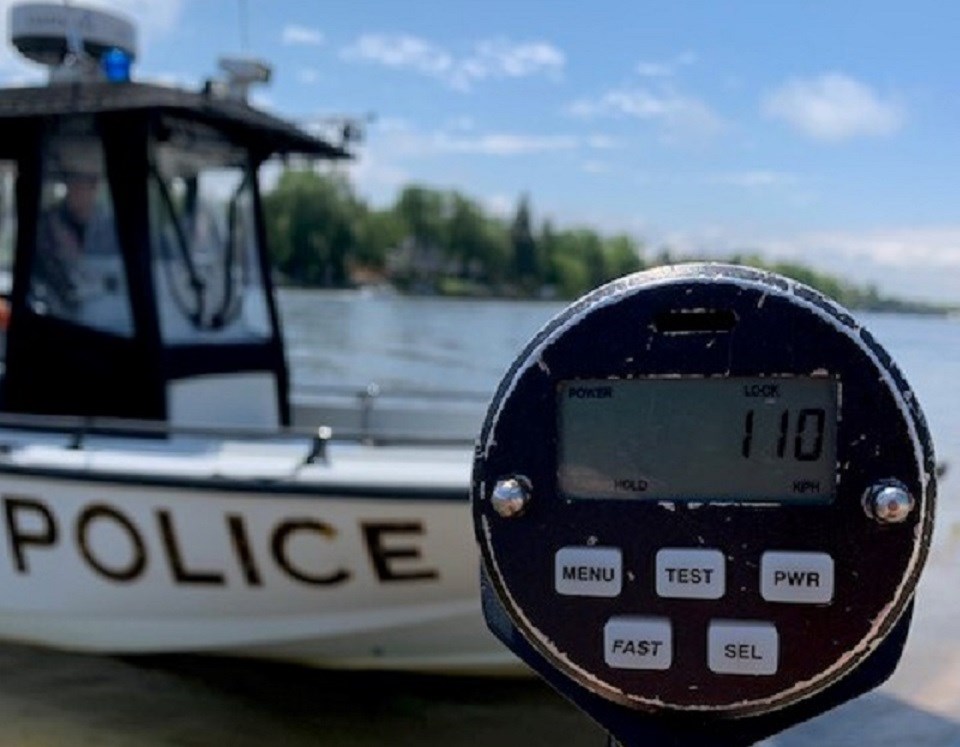With sunny skies and warmer temperatures predicted for this weekend, OPP are reminding boaters that they field numerous complaints about boats operating at high rates of speed on area lakes and rivers. Operating boats at a high rate of speed puts both swimmers and other vessel occupants at risk.
Vessel operators have many responsibilities when travelling on waterways says an OPP news release.
Operators must have a valid Pleasure Craft Operator Card as well as all necessary safety equipment required by law for the style and size of their vessel. Every person onboard must have an approved personal flotation device or lifejacket, appropriate for their size.
Although not the law, it is a good idea to wear your life jacket, particularly in smaller crafts and operators should ensure they have attached the tether kill switch cord.
A province-wide-shoreline speed restriction of 10 km\h within 30 meters of shore is in effect whether posted or not.
Exceptions include:
- Towing where the boat is heading on a 90 degree angle from the shoreline;
- Rivers less than 100m wide, as well as canals and buoyed channels;
- Areas where Transport Canada approved speed limits are already in place.
"Operating boats at high rates of speed in narrow waterways and rivers unnecessarily puts people and property at risk," says Inspector Tyler Sturgeon, "It is not only a matter of respect for others using our waterways - it is a matter of public safety and potential legal consequences."
An operator must also be aware of their surroundings. Know the consequences of your boat's wake such as:
- Adverse effect on the operation of other vessels (smaller or restricted in their ability to manoeuver);
- Those enjoying other water activities, swimming, fishing etc;
- Erosion of shorelines and destruction to wildlife habitat;
- Damage to moored boats and docks.
Operating in a Dangerous Manner is operating a pleasure craft or any water skis, surfboard, water sled, or other towed device in a manner that causes danger to the public given the nature and condition of the waters and the activities that may reasonably be expected to occur at that time. Do not:
- Buzz other boats or PWCs.
- Try to spray swimmers with the wake from your pleasure craft.
- Cut in front of or try to jump the wake of other boats or PWCs.
The OPP would also like to remind boaters that police officers are able to demand a roadside or boating breath demand from any lawful stopped driver/operator to determine whether a person has alcohol in their body without first having to suspect the motorist/boater has been drinking.
"Impaired boating is Impaired driving," says the release. "Operating a boat while under the influence of alcohol or drugs is an offence under the Criminal Code of Canada. There is no difference between impaired driving and impaired boating in the eyes of the Criminal Code of Canada."
The laws for recreational boating are there to ensure the safety for all who enjoy our waterways. And while some deficiencies or activities may result in a fine, failing to consider the impacts of your behaviours could find you being held financially accountable for damages or harm caused. For more information on boat safety, equipment requirements for your boat and recreational boating laws visit



